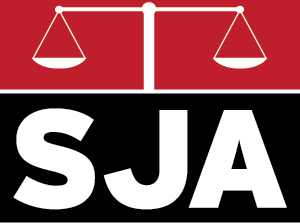
Recently, a group of community organizations released Facing Race, a report that assesses that the voting records of Washington state legislators in promoting racial equity. Notably, the report recognizes ending the death penalty is one change that our state representatives should make to advance the goal of racial justice in Washington.
Although African Americans comprise less than 4 percent of the state’s population, 4 of the 8 men on the state’s death row are African American. The overrepresentation of African Americans on Washington’s death row parallels a national pattern: African Americans represent nearly 42 percent of death row inmates across the country yet represent only 13 percent of the U.S. population.[i]
The disproportionate number of African Americans on death row is not simply a result of African Americans committing higher rates of first degree aggravated degree murder – the only “death-eligible” crime in Washington. Since the state reinstated capital punishment in 1981, African Americans comprised 18 percent of all “death-eligible” cases, yet African Americans have received over 25 percent of the death sentences imposed since 1981.[ii]
The data on homicide cases in Washington also indicates that the race of the victim impacts whether the state imposes a death sentence. Prosecutors asked for the death penalty in 28 percent of cases with one white victim, but only 18 percent of cases involving a victim of color.[iii] For cases with a white defendant and a non-white victim, the rate drops to less than 13 percent.[iv]
While prosecutors appear to seek the death penalty against African American and white defendants at fairly equal rates, it important to note that juries are more likely to impose the death penalty for African American defendants. In a recent dissenting opinion for the Washington Supreme Court, Justice Charles Wiggins expressed concern regarding this statistical trend.
Judge Wiggins opinion presented an analysis of 73 cases in which prosecutors sought the death penalty, and found that juries ultimately imposed the death penalty in 40 percent of cases involving white defendants and in 62 percent of cases involving African American defendants. In addition, Judge Wiggins pointed out that African American defendants sentenced to death on average had less aggravating factors than white defendants; and all but one of the African American defendants had a single victim while most of the white defendants had multiple victims. [v]
Significantly, Judge Wiggins asserted that the racial disparities in death penalty cases may be rooted in unconscious bias:
I emphasize that this opinion does not accuse anyone in the criminal justice system of racism, whether they are police, prosecutors, defense counsel, witnesses, jurors, or judges. The African-American experience in this country has been complex and frequently tragic. Attitudes about race can be so deeply buried in our individual and collective unconscious that it is difficult to evaluate their effect on our judgments or the judgments of others. The point is not that African- Americans have been deliberately treated differently with respect to the death penalty; the point is that they have in fact been treated differently.[vi]
The racial disparities in death penalty cases in Washington reflect the racial disparities that exist at every stage of the criminal justice system. As the Facing Race report points out, the disproportionate representation of people of color in Washington’s courts, jails, and prisons is evidence of unequal treatment. The over-representation of people of color in Washington’s criminal justice system cannot be explained by people of color committing more crimes, or more violent crimes. So, we need to recognize that ending the death penalty is one piece of reforming the broader criminal justice system – particularly the punitive policies and practices that have disproportionally affected people of color in our state.
Although we are a long way from achieving racial justice in our criminal justice system – or in our state as whole – state leaders can take a big step in this direction by repealing Washington’s death penalty. When the legislative session begins in a few weeks, lawmakers will consider a bill to replace the death penalty with life in prison without parole. Safe and Just Alternatives is organizing a Lobby Day in January so that constituents from across the state can tell their legislators that it is time to end a fundamentally unjust punishment in Washington.
[i] NAACP Legal Defense and Education Fund, “Death Row USA,” Spring 2012. http://www.deathpenaltyinfo.org/documents/DRUSASpring2012.pdf
[ii] Based on an analysis of 300 trial reports filed with the Washington Supreme Court from 1981 to 2012 pursuant to RCW 10.95. Trial reports for aggravated murder convictions are available upon request from the Washington State Supreme Court.
[iii] Ibid.
[iv] Ibid.
[v] State v. Davis, 175 Wn.2d 287 (Sept. 20, 2012)(Wiggins, J. concurring in dissent), p. 4.
[vi] State v. Davis, 175 Wn.2d 287 (Sept. 20, 2012)(Wiggins, J. concurring in dissent), p. 2.




